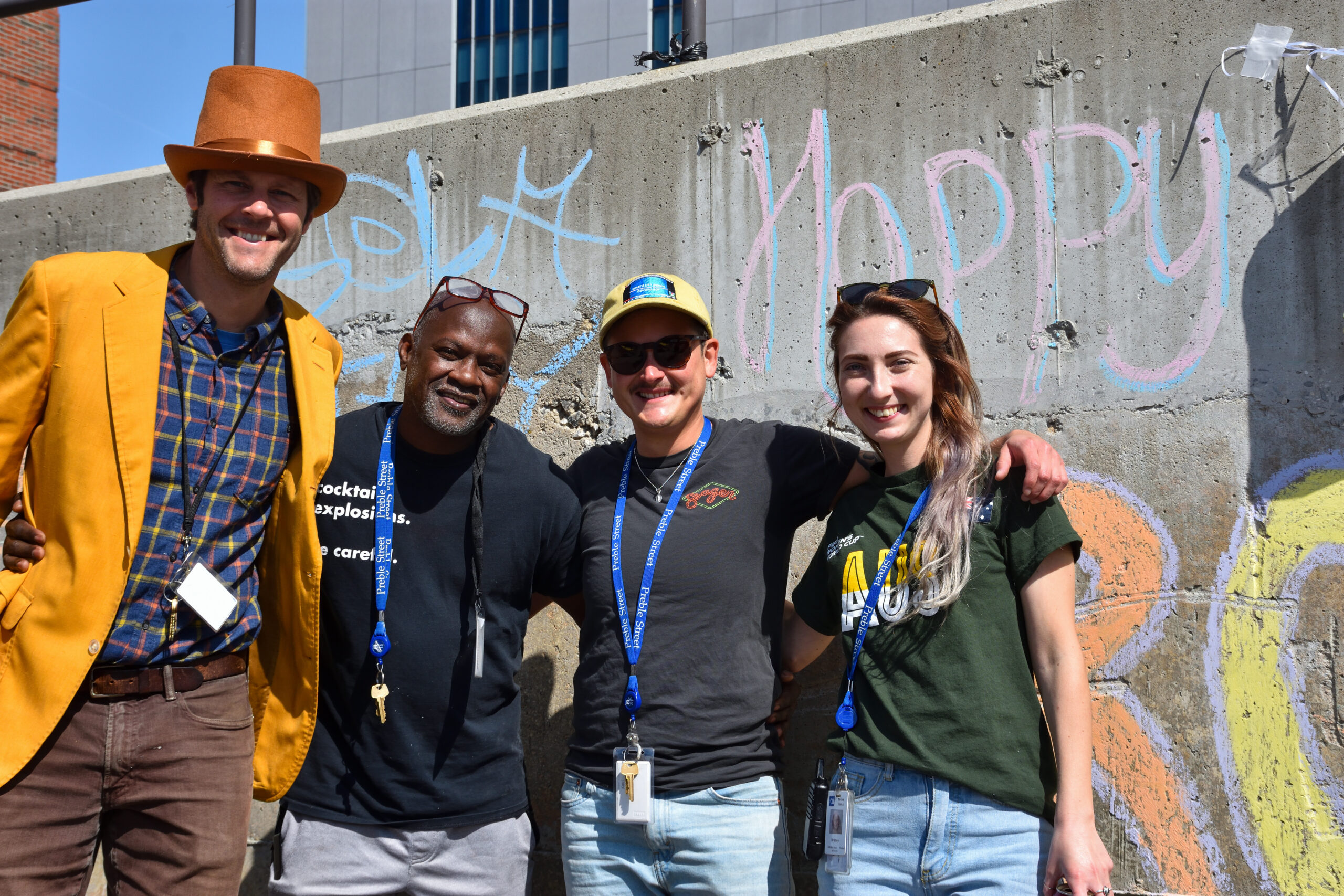(Pictured: Recuperative Care staff from Preble Street and GPH at the 1 year anniversary celebration of the program)
In the days before Maine’s first recuperative care program (RCP) opened last September, the walls of the light-filled space were bare. One year later the walls are full of colorful photos and art, most created by patients who have come through the program.
While recuperative care is still a relatively new concept in the U.S., this program has been a long time coming in Portland and is already filling a huge gap in services. A partnership between Maine Medical Center, Greater Portland Health, and Preble Street, this innovative and cutting-edge program provides a space for people experiencing homelessness to rest, heal, and connect with medical care and social work providers after being released from a hospital stay. Recuperative care (also known as medical respite care) services include short-term medical care and case management provided to individuals recovering from an acute illness or injury that generally does not necessitate hospitalization but would be exacerbated by their living conditions (e.g., street, shelter, or other unsuitable places). Numerous studies have found that recuperative care programs reduce hospital readmission, days in the hospital, and visits to the ER, reduce overall medical costs, and improve health outcomes.
“When most people are discharged from the hospital, we have a home to go to, a loved one to take care of us, a fridge to store medications, and access to ongoing medical care,” says Britt La Shier, Preble Street Director of Social Services at RCP. “That’s not the case for people experiencing homelessness. When people are able to recover here versus outside it possibly adds years to their life and definitely adds to the quality of that life. It’s almost impossible for really complex wounds to heal outside on the streets. And just sleeping in a bed for a couple of weeks or a couple months like clients can do here... what that does for someone’s mental health and ability to regroup is incredible.”
The 15-bed program serves people with acute medical needs and most stays last approximately 4-6 weeks. In today’s housing crisis this is often not enough time to get someone into housing, but it is enough time to lay the foundation toward long-term stability and eventually a permanent home. Many patients begin attending virtual substance use recovery meetings while in the program and take part in the various activities RCP offers, including grief groups and art therapy. Some clients reconnect with family again.
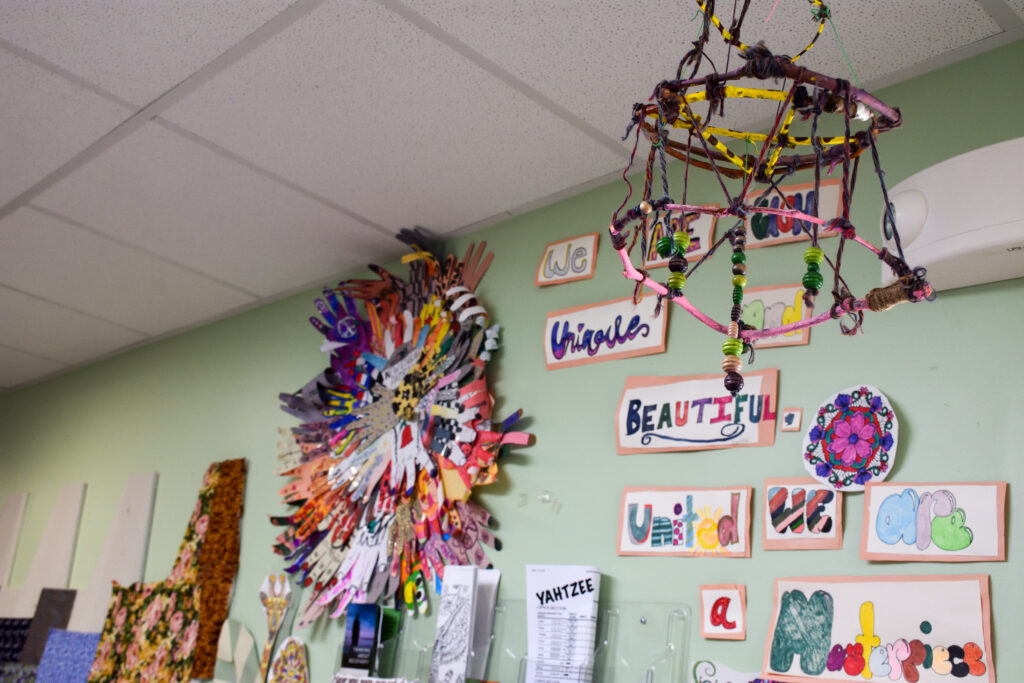
Preble Street Love
In just one year, RCP has built a strong sense of community among the people who have been there. “We see a lot of them taking care of each other in the encampments and other places after they’ve left the program,” shares Britt.
One client happened to be recovering at RCP when their birthday came around. Staff and clients threw a small celebration with cake, food, and a small gift. Through tears of joy the client shared that it had been over 30 years since anyone had acknowledged their birthday. They had not had a celebration for it in their adult life. “These are the things that people are going to remember,” says Britt.
“It’s been really magical to see people’s perspective on life shift once they are in a safe space and not in survival mode anymore,” says Britt. “It seems so simple, but some people have never had a choice between cereals before, or a toaster to use, or a place to relax. And then after a couple of days or weeks of their basic needs being met, they begin to build relationships with caseworkers, filling out applications for benefits or housing. And then once they’re outside again, they continue that work and engage with Preble Street staff in other programs to keep moving forward.”
Along with the impact on clients, the program is building more collaboration between the medical and social service worlds. Britt and Clinical Director Rob Fulton of Greater Portland Health are in constant contact with recuperative care programs across the country, especially the innovative Barbara McInnis House, part of the Boston Health Care for the Homeless Program (if you’ve read the book Rough Sleepers by Tracy Kidder, you have read about this program). “It’s been really awesome hearing what other programs are doing. We’re always trying to adapt to make the best medical respite program that we possibly can,” says Britt.
What’s needed most now is to expand programs like this to ensure that everyone who needs a safe environment to recover can have access to it. Recuperative care fills gaps in services that can lead to longer, better lives and reduce lengths of homelessness.
Read more
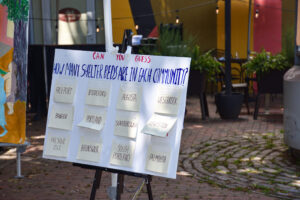
Maine’s 40 Emergency Shelter Providers are thankful for one-time funding to support shelter operations
Maine’s emergency shelter providers applaud the passage of LD 698, An Act to Sustain Emergency Homeless Shelters in Maine. Relying on a mix of private philanthropy and government funding, emergency shelters have faced rising costs, weathered the pandemic and inflation, and continued to meet the changing and complex needs of individuals and families who need
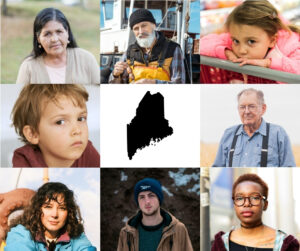
Do your job as a Mainer: Make sure families in our state have food and healthcare!
Someone you know — likely MANY people you know — are about to lose food assistance and healthcare. Food and healthcare are basic human rights that, for many Mainers, are only possible through SNAP and Medicaid. The massive proposed cuts to these vital programs will harm thousands of Maine caregivers, older adults, people with disabilities, Veterans, families,
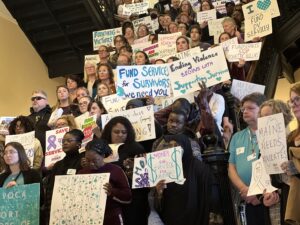
Walking alongside survivors
Photo credit: Maine Morning Star Preble Street’s work is never done in isolation. We are continuously making connections with other social service providers and nonprofits to better serve clients and the needs of the community. This month, we are highlighting a key partner of Preble Street Anti-Trafficking Services, MECASA. The Maine Coalition Against Sexual Assault
